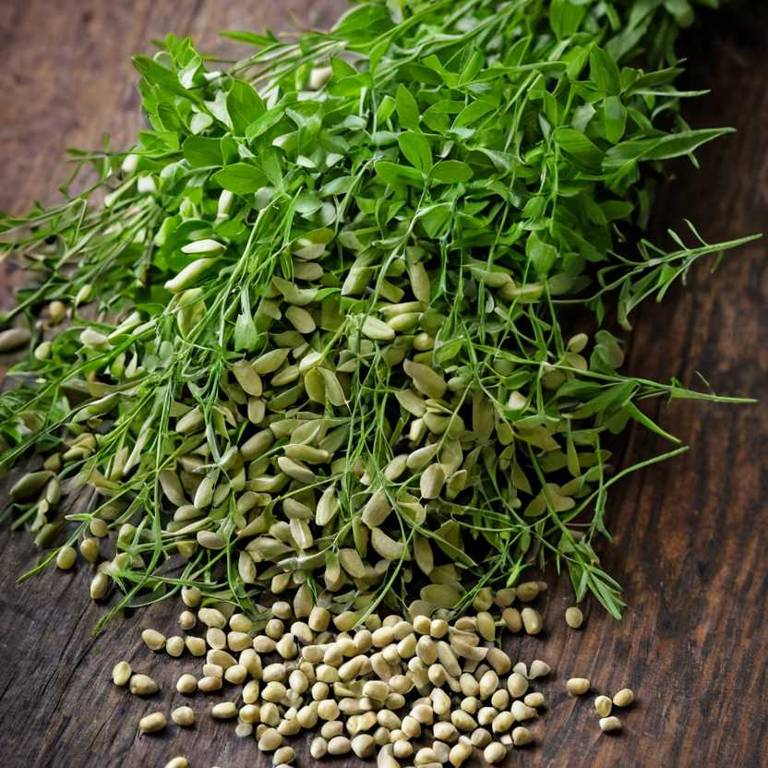False Indigo (Baptisia tinctoria)
False Indigo (Baptisia tinctoria) is a member of the Fabaceae family, native to Eastern North America, United States, and Canada. Traditionally, its roots, rhizomes, and seeds have been used for decoctions, infusions, and powders.
This herb is particularly valued for its tonic, bitter, and stimulant actions, and has a long history of use in native american herbal medicine, european herbal medicine, and traditional chinese medicine.

Quick Facts / Key Information
| Common Name | False Indigo |
|---|---|
| Scientific Name | Baptisia tinctoria |
| Plant Family | Fabaceae |
| Genus | Baptisia |
| Species | tinctoria |
| Native Range | Eastern North America, United States, Canada |
| Plant Parts Used | Roots, Rhizomes, Seeds |
| Primary Medicinal Actions | Tonic, Bitter, Stimulant |
| Primary Traditional Systems | Native American Herbal Medicine, European Herbal Medicine, Traditional Chinese Medicine |
| Historical Preparation Methods | Decoction, Infusion, Powder |
Botanical Identity
- Scientific Name
- Baptisia tinctoria
- Common Name
- False Indigo
- Synonyms / Alternative Names
- Baptisia, Blue False Indigo, False Dragonhead
- Plant Family
- Fabaceae
- Genus
- Baptisia
Botanical Description
- Growth Habit
- Perennial herbaceous plant.
- Height
- It typically grows to a height of 1 to 2 meters.
- Leaves
- Broad leaves with upper surface glaucous green and lower surface pale green, bearing prominent stomatal bands along midribs.
- Flowers
- Upright spikes of blue to purple flowers with five petals and a yellow keel, actinomorphic symmetry, and prominent golden stamens.
- Stems
- Cylindrical, woody, erect growth habit with opposite branching, smooth, glabrous surface, and presence of prominent ridges and nodes.
Traditional Uses / Historical Use
Traditional Systems
- Native American Herbal Medicine
- European Herbal Medicine
Historical Preparation Methods
- Decoction
- Infusion
- Powder
- Tincture
Medicinal Actions
- Tonic
- Historically regarded as a warming tonic, in general wellness contexts.
- Bitter
- As described in traditional systems, a calming bitter, in taste-driven classifications.
- Stimulant
- Commonly referenced as a mild stimulant, in wakefulness-related contexts.
- Anti-inflammatory
- In herbal texts, considered a cooling anti-inflammatory, in tissue-soothing contexts.
Active Compounds
- Flavonoid
- A widely occurring class of plant polyphenols found in leaves, flowers, and fruits.
- Alkaloid
- Plant-derived nitrogenous compounds found in various tissues.
- Tannin
- Plant-derived compounds known for their ability to bind proteins.
- Saponin
- A group of glycosidic compounds commonly found in roots, leaves, and seeds.
Modern Research Overview
Scientific literature concerning this plant spans multiple areas, including phytochemistry and laboratory research. Detailed analysis of published studies is not included at this time and will be added as part of future editorial expansion.
Safety & Contraindications
- General Precautions
- General precautions have been noted regarding the use of this herb.
- Contraindications
- Specific contraindications associated with this herb have not been well documented.
- Allergies
- Reports of allergic reactions to this herb are not well documented in available sources.
- Drug Interactions
- The potential for interactions with prescription medications has not been extensively studied.
- Toxicity
- Toxic effects have been reported in association with the use of this herb.
- Pregnancy & Breastfeeding
- Available information regarding use during pregnancy or breastfeeding is limited.
Preparation & Usage Methods
- Infusion
- Plant material is steeped in hot water to extract water-soluble compounds.
- Decoction
- Plant parts are gently boiled in water to release soluble constituents.
- Poultice
- Plant parts are crushed or moistened and placed directly on the body.
- Tincture
- Tinctures are liquid extracts produced through alcoholic maceration.
- Powder
- A preparation created by pulverizing dried plant material.
Growing, Harvesting & Storage
Growing / Cultivation
- Soil
- Prefers loamy soil with well-drained conditions. Typically grows best in organically rich soils.
- Sunlight
- Thrives in full sun. Tolerates full sun to partial shade.
- Watering
- Prefers moist soils. Tolerates periodic dry conditions.
Medical Disclaimer
The information provided on this page is for educational and informational purposes only. It is not intended to diagnose, treat, cure, or prevent any medical condition. Always consult a qualified healthcare professional before using any herb for medicinal purposes.